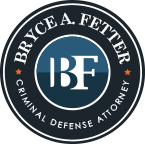Florida Misdemeanor Crimes
Under Florida law all crimes are divided into two categories: misdemeanors and felonies. Misdemeanors are punishable by up to one-year in county jail and classified as either a first-degree or second-degree offense. Some misdemeanor penalties can be upgraded based on a prior conviction of the same offense.
First-Degree Misdemeanors
First-degree misdemeanor penalties are the most serious misdemeanors in Florida, punishable by up to one-year in jail, one-year of county probation and a fine of up to $1,000. Other sanctions can include community service, educational classes, individual or group counseling, a no-alcohol provision, a no-contact order and random drug testing. Examples of first-degree misdemeanors are:
- Improper Exhibition of a Weapon
- Possession of Cannabis
- Possession of Drug Paraphernalia
- Racing on the Highway
- Resisting an Officer without Violence
- Simple Battery
- Solicitation for Prostitution
- Stalking
- Violation of an Injunction
Second-Degree Misdemeanors
Second-degree misdemeanor penalties are punishable by up to 60 days in jail, six months of county probation and a fine of up to $500. Other sanctions can include any court-ordered condition of probation. Examples of second-degree misdemeanors are:
- Disorderly Conduct
- Disorderly Intoxication
- Leaving the Scene of an Accident
Misdemeanor Penalties Can Be Increased for Subsequent Convictions
Under Florida law some misdemeanor penalties can be increased for a second or subsequent conviction. This means you face harsher penalties if you have previously been convicted of the same offense. Florida crimes that can be enhanced based solely on one’s prior record are:
- Simple Battery
- Criminal Mischief
- Driving with a Suspended License
- DUI
- Reckless Driving
- Shoplifting
- Solicitation for Prostitution
Statute of Limitation
For all Florida misdemeanors the State must begin criminal prosecution within a set period of time. This time frame is called the statute of limitation. Criminal prosecutions commenced after the statute of limitation can are subject to dismissal. The statute of limitation begins to run when the crime is committed. Misdemeanors in Florida generally have a statutes of limitation of one or two years.
Florida Misdemeanor Crimes
Under Florida law all crimes are divided into two categories: misdemeanors and felonies. Misdemeanors are punishable by up to one-year in county jail and classified as either a first-degree or second-degree offense. Some misdemeanor penalties can be upgraded based on a prior conviction of the same offense.
First-Degree Misdemeanors
First-degree misdemeanor penalties are the most serious misdemeanors in Florida, punishable by up to one-year in jail, one-year of county probation and a fine of up to $1,000. Other sanctions can include community service, educational classes, individual or group counseling, a no-alcohol provision, a no-contact order and random drug testing. Examples of first-degree misdemeanors are:
- Improper Exhibition of a Weapon
- Possession of Cannabis
- Possession of Drug Paraphernalia
- Racing on the Highway
- Resisting an Officer without Violence
- Simple Battery
- Solicitation for Prostitution
- Stalking
- Violation of an Injunction
Second-Degree Misdemeanors
Second-degree misdemeanor penalties are punishable by up to 60 days in jail, six months of county probation and a fine of up to $500. Other sanctions can include any court-ordered condition of probation. Examples of second-degree misdemeanors are:
- Disorderly Conduct
- Disorderly Intoxication
- Leaving the Scene of an Accident
Misdemeanor Penalties Can Be Increased for Subsequent Convictions
Under Florida law some misdemeanor penalties can be increased for a second or subsequent conviction. This means you face harsher penalties if you have previously been convicted of the same offense. Florida crimes that can be enhanced based solely on one’s prior record are:
- Simple Battery
- Criminal Mischief
- Driving with a Suspended License
- DUI
- Reckless Driving
- Shoplifting
- Solicitation for Prostitution
Statute of Limitation
For all Florida misdemeanors the State must begin criminal prosecution within a set period of time. This time frame is called the statute of limitation. Criminal prosecutions commenced after the statute of limitation can are subject to dismissal. The statute of limitation begins to run when the crime is committed. Misdemeanors in Florida generally have a statutes of limitation of one or two years.



